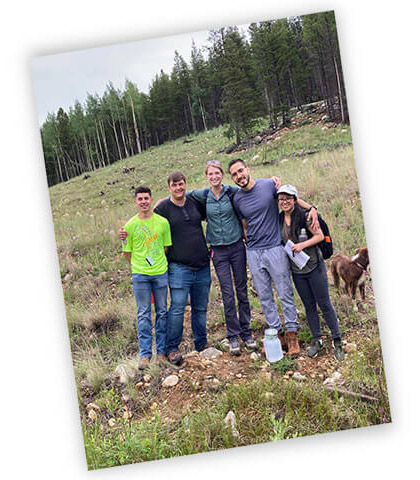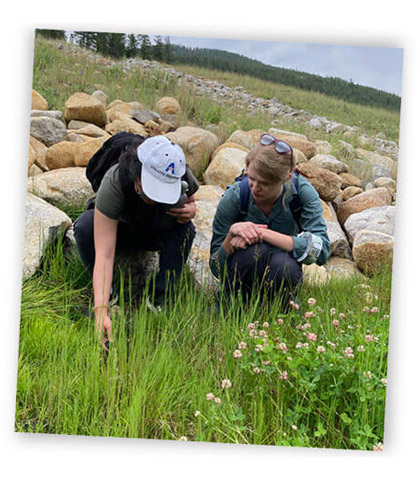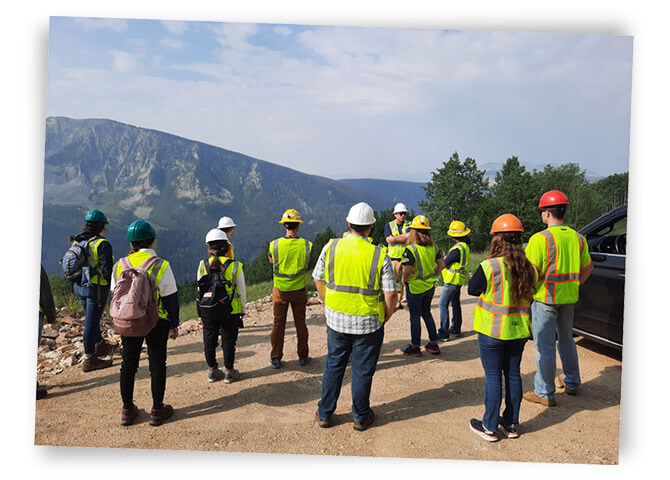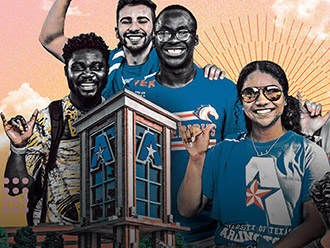When COVID-19 made traveling to other countries difficult, if not impossible, civil engineering Professor Kathleen Smits had to come up with a new plan for field work that was originally supposed to take place in Colombia as part of her National Science Foundation-funded project, which she has incorporated into a service-learning course.
The new plan took her, along with her graduate and undergraduate students, to Gunnison, Colorado. Students visited abandoned, active, and reclaimed mining sites throughout Colorado, and in the afternoons, they worked with miners in Colombia remotely through online platforms to co-design and create physical prototypes to address high-priority challenges and opportunities.
“In light of COVID, the trip to Colorado served as a great alternative to get some firsthand knowledge of mining, if not from a different perspective,” says Dr. Smits.

Who:
Kathleen Smits, her undergraduate and graduate students, and partner institutions Colorado School of Mines, the U.S. Air Force Academy, Colorado University—Boulder, and Universidad Nacional de Colombia
How:
Through a service-learning course and the power of remote technology
Why:
“By explicitly creating engineering problems grounded in social and environmental justice concepts, we are able to attract, motivate, and retain more diverse students who are able to find a sense of place and purpose in their work.”
—Smits

Lessons they took back home:
“Mining will have to continue as the demand for greener energy continues to grow, since these technologies require numerous mined resources. Understanding and addressing the aftereffects of mining will have to become seen as necessary.”
—Nathaniel Steadman, environmental engineering master’s student
“While working in Colorado, trying to communicate with people in Colombia, an important thing I learned is that our solutions as engineers could be different from those in the community. We need to take into account their different ways of life if we want to help them.”
—Ashley Nguyenminh, civil engineering senior
“I learned a new way that community work can be done remotely. This opens up the door for future collaborations with communities around the world.”
—Michelle Schwartz, civil engineering doctoral student



